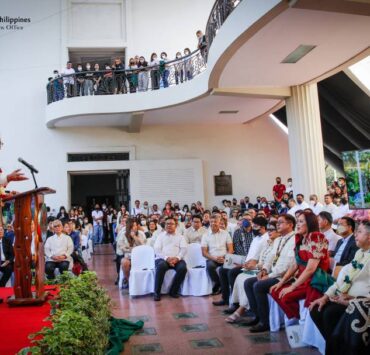Roadblocks to clean energy plan

The Marcos administration has laid out an ambitious and laudable goal to increase the share of renewable energy in the country’s generation mix to 35 percent by 2030 and as high as 50 percent by 2040 – a goal, however, that is in real danger of being missed.
This, after the Department of Energy (DOE) said on Sunday that it was poised to terminate at least 105 renewable energy projects – most of which had been approved in 2017 and 2019 – due to their proponents’ failure to meet committed timelines.
Indeed, of the 105 projects, 84 percent or four of every five projects – ranging from solar to hydropower, wind, geothermal and biomass – had barely made any progress or had not even gone beyond the pre-development stage.
Reasons cited for the extended delay include difficulty in securing rights to use land as well as system impact studies, which means that the plants will not be able to connect to the transmission grid that will transport the power from the renewable energy plants to the users.
The DOE ultimately deemed the delays unacceptable thus the move to terminate the contracts, based on the revised guidelines issued in 2024 governing the award and administration in of renewable energy contracts and registration of renewable energy developers.
Investor confidence
DOE Undersecretary Rowena Cristina Guevara said the Marcos administration was committed to ensuring the timely execution of renewable energy projects, thus “if any contracts are deemed non-performing, we will open them up to new developers who can effectively bring these projects into fruition.”
“This strategy not only accelerates the development timeline but also strengthens investor confidence in the country’s renewable energy goals,” Guevara added.
As of end-June, the DOE had awarded at least 1,435 service contracts with a total potential capacity of over 156,700 megawatts, of which 6,100 MW worth of contracts have already been installed.
The DOE should be given credit for drawing up a “clear” termination process to weed out “non-serious” project developers so that the contracts will go to those who could demonstrate great commitment to see these needed projects through.
Merely stripping contracts from one developer and assigning them to another will not guarantee, however, that the projects will automatically move faster. Thus, other stakeholders have to be on board to ensure that the projects will proceed without unnecessary delays.
Right-of-way issues
Local government units, for example, should hasten the issuance of permits for these vital projects that may be set up in their area. Right-of-way issues have long hounded infrastructure projects but local officials can make a difference by removing stumbling blocks to allow legitimate projects to forge ahead.
The National Grid Corporation of the Philippines, which operates the transmission grid, must also be fully on board with the transmission facilities to ensure that the generated power will be readily carried to the customers as soon as they are ready to be fired up.
The NGCP has been experiencing delays of its own that are also getting the ire of the DOE. Hopes are high, however, that the parties will come to the negotiating table with the common desire to immediately add renewable energy to the country’s mix.
The DOE is doing its share through innovations such as the issuance of a certificate of authority (COA) so that developers can immediately proceed with pre-development activities even before a contract commences. Likewise, the DOE sought to hasten the permitting process through the Energy Virtual One-Stop Shop or EVOSS.
The streamlined procedures are meant to reduce bureaucratic problems and contract terminations, Guevarra said.
Business-friendly environment
Indeed, these kinks must be ironed out lest they stall the growth of momentum of investments in the renewable energy sector.
It is worth noting that the Marcos administration’s full support of renewable energy projects, the determination to meet the target plus allowing full foreign ownership fo renewable projects has been met warmly by the international community.
From January to September 15, 2024, the Board of Imvestments approved as much as P1.35 trillion worth of investment pledges, an 82-percent increase from P741.98 billion in approvals in the same period last year, and of this, the energy sector accounted for P1.29 trillion.
Too many roadblocks and unnecessary delays, however, will certainly stall the momentum and perhaps even drive some of these investors elsewhere, to countries with a more business-friendly environment.
The hope then is that the government will get its act together and ensure not only that the serious developers will get the projects, but that their determination will be rewarded and helped along by removing the unnecessary roadblocks to the completion of the projects that the Philippines needs to develop and meet its sustainability targets at the same time.





















